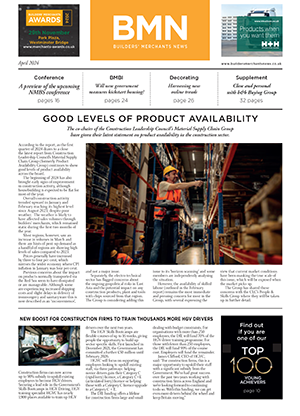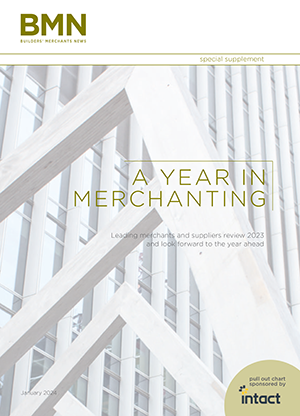Building and construction trade professionals remain overwhelmingly optimistic about the future of the industry, according to a survey undertaken by Gibbs & Dandy.
The builders’ merchant has found that trade professionals, including builders, joiners, electricians, plumbers, and painters and decorators, had a positive view of the future, despite the UK voting to leave the European Union (EU).
When asked how they felt about the short to medium (1-5 years) future of the building industry now that the UK has left the EU, more than two thirds (69.5%) said they were optimistic, while only 12% were pessimistic.
Additionally, when asked if they’d experienced any change in their workload since the UK voted to leave the EU on 23 June, 14% had seen an increase in work, while 84% said their workload was about the same as before the vote.
In terms of the amount of work available, 2016 has been shaping up very well for trade professionals when compared to 2015. This high level of confidence in the industry is reflected by 91% of tradespeople seeing their workload either staying the same or increasing this year compared to 2015.
And, during 2016 to date, three quarters of respondents said there was always work available for them, while only 6.5% said they went 1-3 three days without work due to a lack of jobs available, 4.7% went 4-7 days without work, 7.1% went 2-4 weeks and 3.6% had to wait more than a month before work became available.
Neil Lawrence, managing director of Gibbs & Dandy, said: “Our survey clearly shows the view from trade professionals is one of optimism following the UK’s vote to leave the EU. It’s always great to see such confidence from our customers, and I genuinely believe that the majority of the time, the best trade professionals will always have work available to them.
“While it’s clear that the full effects of Brexit won't be known for a few years, when trade deals are negotiated, my view has always been the same, which is the UK needs a housebuilding revolution. Government, housebuilders, local authorities and the industry as a whole all have a role to play. It’s estimated that the need for additional housing in England alone is between 232,000 to 300,000 new units per year. That’s a level of housebuilding that hasn’t been seen since the 1970s, and is far higher than the current level of building.
“Such an investment in housebuilding will benefit trade professionals and the optimism and confidence they have now, will inevitably increase further.”








